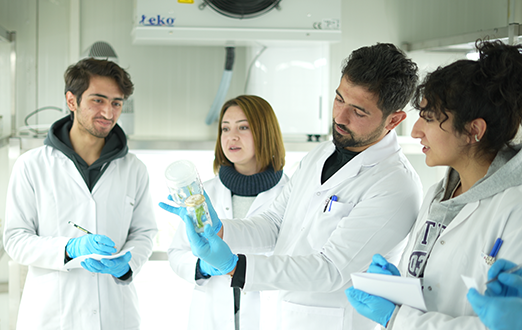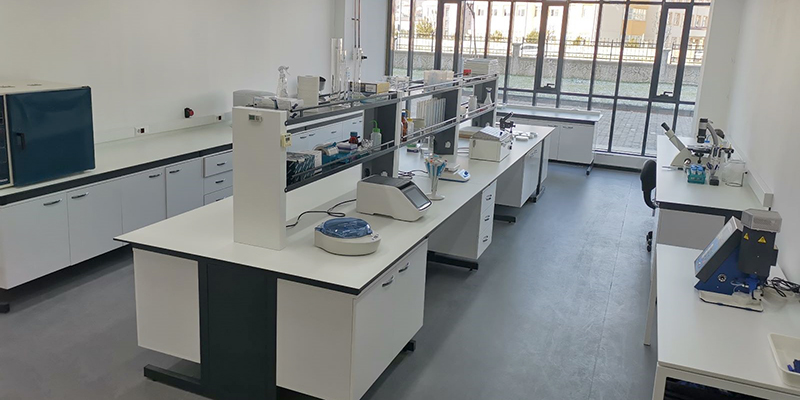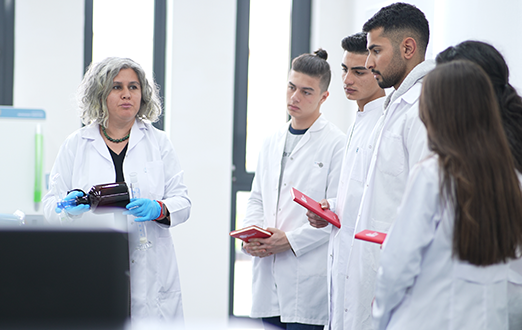Toprak Bilimi ve Bitki Besleme Laboratuvarı
Studies are conducted to determine the prevalence and levels of damage caused by diseases and weeds brought on by bacteria, phytoplasmas, fungi, viruses, and viroids that harm plants and plant-derived products, as well as their biology, epidemiology, and control options.
Dayanıklılık ıslahı çalışmaları kapsamında bitkilerdeki hastalıklara dayanıklılık mekanizmaları, dayanıklılık genlerinin belirlenmesi ve bu genlerin yüksek verim ve kalite potansiyeline sahip genotiplere aktarılması çalışmalarına ağırlık verilmektedir.
Laboratuvarımızda;
• Standart Toprak Verimlilik Analizi Paket 1 (Saturasyon, Tuz, pH, Kireç, Fosfor, Potasyum, Organik Madde)
• Standart Toprak Verimlilik Analizi Paket 2 (Bünye, Tuz, pH, Kireç, Fosfor, Potasyum, Kalsiyum, Magnezyum, Organik Madde)
olmak üzere 2 farklı analiz paket seçeneği bulunmaktadır.





